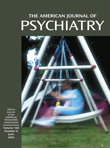Psychiatry on Trial: Fact and Fantasy in the Courtroom
The title of this book may startle; it suggests that the profession of psychiatry itself is on trial. As a consequence of the criticisms of psychiatric testimony in the courtroom, it has been said that, to safeguard the reputation of psychiatry, psychiatrists should stay out of the courtroom.
In the early 1990s, APA’s Council on Psychiatry and Law, charged with the task of considering the many criticisms about the quality of psychiatric expert testimony, reported, “Some criticism, to be sure, is ill-informed, stemming from a misunderstanding of the role of the expert witness in court. Much of it, however, comes from knowledgeable commentators who are disturbed by aspects of psychiatrists’ conduct on the witness stand”(1).
This book by Dr. Bursten is about the quality of psychiatric testimony, not about its impact on the profession as a whole. He acknowledges that, unfortunately, there is improper psychiatric testimony, sometimes outrageous testimony, but there can also be good testimony that can help the judge or jury reach a more well-informed decision.
With illustrations from his forensic practice of more than 30 years, Dr. Bursten seeks to distinguish between good and improper testimony. The book is not a sourcebook on psychiatry or legal concepts, but it provides enough information about psychiatry and law that the issues can be understood by either profession. Purposefully, Dr. Bursten opts for conversational rhetoric, understandable to nonprofessionals in either field, rather than the academic prose style. The result is a lucid, easy-to-read, enjoyable book, and it is attractively published.
Medieval judges knew a witch when they saw one. How are contemporary decisions made in the courtroom? A court proceeding, to be sure, is not a scientific inquiry; it is, as Dr. Bursten says (p. 5), a persuasion arena where the contestants try to make the judge or jury see things their way. The judge, and particularly a jury, want a good story decorated with figments of facts. A trial is likened to theater. What lawyers want in an expert medical witness are the looks of Robert Redford, the knowledge of Michael DeBakey, and the presence of Ronald Reagan.
In the courtroom presentations of a story or of the facts are circumvented by constraints of time, constitutional and other limitations on evidence, and considerations of confidentiality, yet as a consequence of the decision, people may gain or lose a fortune, they may lose custody of children, or they may be sent to prison or even be sentenced to death. In the view of many, the legal system is a “lottery,” so actually it is the reputation of the legal system—more than psychiatry—that is on trial. To be sure, people in the United States have lost confidence in the way trials are conducted—they are costly, they are time-consuming, and the outcomes are incongruous. Trials have appeal only as television entertainment. Increasingly, cases are settled, mediated, or arbitrated. Trials have become a rarity.
In any event, Dr. Bursten says that hunting down causes is one of the most fascinating aspects of his work as a forensic psychiatrist. When he can identify a cause (or the absence of a cause), and he has data to back up his opinion, he feels he is in a position to tell the judge or jury something they would not ordinarily have known from common knowledge (p. 39). Yet there are areas where he wonders whether he can be of any assistance, as for example in a child custody proceeding, where he says that, at least in many cases, trying to decide which parent will act in the best interests of the child is usually a futile exercise (p. 114).
The primary role of the forensic psychiatrist is to explain behavior. “Though this be madness,” Shakespeare wrote, “yet there is method in it.” Put another way, as Dr. Phil Resnick said as defense psychiatrist in the trial of Andrea Yates, charged with the drowning of her five children, there was “rationality in her irrationality.” As might be expected, Dr. Park Elliot Dietz, as prosecution psychiatrist, had a different understanding of her behavior. Then, too, biographies by historians vary in perspectives, although they may all be based on historical truth.
In apt phrasing, Dr. Bursten distinguishes between “junk science” and “twisted science.” Junk science is based on faulty research or no research at all—just anecdote or wishful thinking. Twisted science, as he uses the term, occurs when experts use well-researched concepts and data but misinterpret them, perhaps because they misunderstand the meaning of the studies or perhaps in an attempt to impress the judge or jury.
In several chapters, Dr. Bursten illustrates testimony involving psychiatric impairments, evaluations without examinations, standards of care in treatment, child abuse and revival of memory, sexual harassment, unfitness for duty, civil commitment, role conflicts in both treating and testifying, and sex offenders.
In the course of his career in law and psychiatry, Dr. Bursten was the major author of the Connecticut confidentiality statute and contributed to legislation on treatment of alcoholics and on release of information to third-party payers. He is the author of The Manipulator(2), and Beyond Psychiatric Expertise(3) as well as numerous articles. He graduated from the University of Vermont with honors in psychology and cum laude from the Yale Medical School and was on the faculty of the Yale Department of Psychiatry from 1964 to 1975. He is a graduate of the Western New England Institute for Psychoanalysis. He currently specializes in consultations with attorneys and government agencies.
1. Halleck SL (ed): American Psychiatric Association Task Force Report 32: The Use of Psychiatric Diagnoses in the Legal Process. Washington, DC, APA, 1992Google Scholar
2. Bursten B: The Manipulator: A Psychoanalytic View. New Haven, Conn, Yale University Press, 1973Google Scholar
3. Bursten B: Beyond Psychiatric Expertise. Springfield, Ill, Charles C Thomas, 1984Google Scholar



